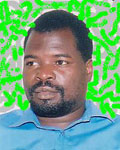Mugabe's worst foe runs amuck as prices escalate
A sense of despair has overwhelmed the country's ordinary folks as much as it has troubled the clueless ruling party elite, with citizens growing increasingly despondent over the rate at which prices are jumping up while the ruling ZANU PF party bigwigs fear the agitation could trigger a major upset against their candidate in the election.
Ever since the disputed March 29 elections, prices have soared by unprecedented margins, worsening the economic turmoil in the crisis-torn country.
Mugabe has accused the business community of colluding with imperialist forces to unseat his government from power by increasing prices to stoke agitation against his regime. The business community has denied the allegation and blamed the government for the mess.
This week, the National Incomes and Pricing Commission, the body regulating prices in the country, accused the business sector of betraying government by undermining its efforts to stabilise prices and reign-in inflation.
Prices are escalating in line with a drastic fall of Zimbabwe's domestic currency, which was allowed to float at the beginning of May - it moved from a fixed exchange rate of Z$30,000/US$1 and opened trade under the new regime at Z$165m/US$1 on May 2.
The domestic currency has since plunged to unprecedented lows. It plumped its lowest depths on Thursday, 05 June 2008, touching a low of Z$1.5bn against greenback, a depreciation of close to 90% in just over a month, its worst drubbing since independence in 1980.
John Mushunje, an artisan based in Harare, sounded dejected as he prepared to pack his bags to seek opportunities in Mozambique.
“It's disheartening and you wonder if the run-off will deliver any change from this chaos,” said Mashunje.
“I walked into a supermarket in the morning to buy a drink for my son. It cost $320 million in the morning but when I returned to buy the same drink, it cost $750 million - same stock that had been in the fridges during the morning,” he said.
Bread, which is scarce due to production limitations among manufacturers, cost Z$15m before the March 29 elections but is now retailing at more than Z$300m per loaf.
The bread shortage is expected to intensify amid reports the country's wheat stocks have been depleted.
Moreover, the country's new black farmers have failed to plant the 70,000ha government had earmarked for the winter wheat crop this season, managing only 8,963ha, representing only 13% of the proposed hectarage.
Maize meal, the staple food commodity, is hardly available on the official market and prices have more than trebled those of the pre-election period.
Retailers said distribution costs have been grossly affected by increasing fuel costs, which trek the price of the Zimbabwe dollar on the foreign exchange market. There has been a blackout on inflation figures by the Central Statistical Office (CSO), whose last released figures indicated inflation was at 164,900% year-on-year for February.
The CSO released monthly inflation statistics to the media in last September and in February this year. The Reserve Bank of Zimbabwe released the November figure in a monetary policy statement.
However, recent media reports indicate that leaked figures give an inflation rate of 1,694,000% for May, the month in which the local currency started trading under the new market-determined regime.
Banking institutions say their forecasts of a 2,000,000% inflation rate for June could be surpassed due to the increasing fall of the Zimbabwe dollar.
The depreciation of the Zimbabwe dollar and its consequent effects on inflation has not only pushed up commodity prices.
Stock prices on the Zimbabwe Stock Exchange have equally gone on the rampage, escalating by unprecedented levels.
The industrial index, which reflects the level of price increases for traded shares, went up 101.47% on Wednesday to reach 908,452,319,846.33 points, while the mining index shot up 157.11% to 1,417,204,171,537.04 points, from 551,211,937,157.11 points the previous day.
Reports suggested government was mulling curbing the rampage on the foreign currency market by imposing controls on the movement of the currency, hoping this would ameliorate uncontrolled price increases.
There is a scheduled meeting between the government and the business sector on the issue.
However, once controls are put in place on the official foreign currency market, trade will shift to the parallel foreign currency market, whose rates were yesterday trying to catch up with the sharp decline of the Zimbabwe dollar on the official market.
The US dollar was fetching Z$1bn on the parallel market on Thursday, 05 June 2008, about Z$500m less than on the official market.








